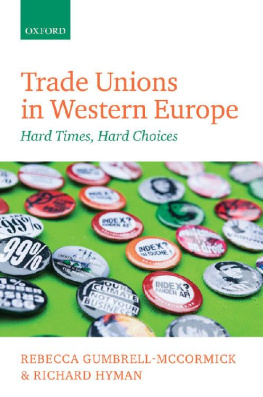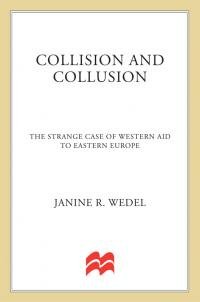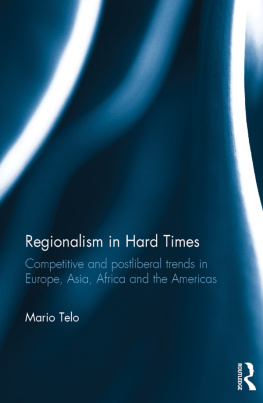Rebecca Gumbrell-McCormick - Trade Unions in Western Europe: Hard Times, Hard Choices
Here you can read online Rebecca Gumbrell-McCormick - Trade Unions in Western Europe: Hard Times, Hard Choices full text of the book (entire story) in english for free. Download pdf and epub, get meaning, cover and reviews about this ebook. year: 0, genre: Politics. Description of the work, (preface) as well as reviews are available. Best literature library LitArk.com created for fans of good reading and offers a wide selection of genres:
Romance novel
Science fiction
Adventure
Detective
Science
History
Home and family
Prose
Art
Politics
Computer
Non-fiction
Religion
Business
Children
Humor
Choose a favorite category and find really read worthwhile books. Enjoy immersion in the world of imagination, feel the emotions of the characters or learn something new for yourself, make an fascinating discovery.
- Book:Trade Unions in Western Europe: Hard Times, Hard Choices
- Author:
- Genre:
- Year:0
- Rating:3 / 5
- Favourites:Add to favourites
- Your mark:
- 60
- 1
- 2
- 3
- 4
- 5
Trade Unions in Western Europe: Hard Times, Hard Choices: summary, description and annotation
We offer to read an annotation, description, summary or preface (depends on what the author of the book "Trade Unions in Western Europe: Hard Times, Hard Choices" wrote himself). If you haven't found the necessary information about the book — write in the comments, we will try to find it.
Trade Unions in Western Europe: Hard Times, Hard Choices — read online for free the complete book (whole text) full work
Below is the text of the book, divided by pages. System saving the place of the last page read, allows you to conveniently read the book "Trade Unions in Western Europe: Hard Times, Hard Choices" online for free, without having to search again every time where you left off. Put a bookmark, and you can go to the page where you finished reading at any time.
Font size:
Interval:
Bookmark:

Trade Unions in Western Europe
This page intentionally left blank
Trade Unions in
Western Europe
Hard Times, Hard Choices
Rebecca Gumbrell-McCormick
and
Richard Hyman
Great Clarendon Street, Oxford, OX2 6DP,
United Kingdom
Oxford University Press is a department of the University of Oxford.
It furthers the Universitys objective of excellence in research, scholarship, and education by publishing worldwide. Oxford is a registered trade mark of Oxford University Press in the UK and in certain other countries
Rebecca Gumbrell-McCormick and Richard Hyman 2013
The moral rights of the authors have been asserted
First Edition published in 2013
Impression: 1
All rights reserved. No part of this publication may be reproduced, stored in a retrieval system, or transmitted, in any form or by any means, without the prior permission in writing of Oxford University Press, or as expressly permitted by law, by licence or under terms agreed with the appropriate reprographics rights organization. Enquiries concerning reproduction outside the scope of the above should be sent to the Rights Department, Oxford University Press, at the address above
You must not circulate this work in any other form
and you must impose this same condition on any acquirer
Published in the United States of America by Oxford University Press 198 Madison Avenue, New York, NY 10016, United States of America British Library Cataloguing in Publication Data
Data available
Library of Congress Control Number: 2013939266
ISBN 9780199644414
Printed and bound in Great Britain by
CPI Group (UK) Ltd, Croydon, CR0 4YY
Links to third party websites are provided by Oxford in good faith and for information only. Oxford disclaims any responsibility for the materials contained in any third party website referenced in this work.
To the memory of Georges Debunne (19182008) and Jack Jones (19132009), inspirational European trade unionists
This page intentionally left blank
Preface
For several decades, trade unions in Europe have been on the defensive. They have lost membership, sometimes drastically. Their collective bargaining power has declined, as has their infl uence on government and, in some countries, their public respect. Unions in western Europe achieved their greatest socio-economic status half a century ago, in the context of large-scale industrial production (Fordism) and the rise of the Keynesian welfare state.
Leading employers were national champions, and national governments self-evidently shaped social and economic policy; it seemed obvious that unions were a crucial actor in a triangular relationship.
Today the landscape has changed irrevocably. Governments profess their inability to resist the dictates of global economic forces; major companies are almost universally transnational in ownership and in their production strategies; trade unions are often disoriented. Many show obvious uncertainty as to their role in the 21st century, giving rise to internal confl icts. Some observers ask whether unions remain relevant socio-economic actors. But hard times can stimulate new thinking and hence provide new opportunities; the challenge is to review unions purposes and priorities and to devise new ways of achieving these. This can involve hard choices: not all objectives can receive priority, particularly when resources are scarcer. In our view, participation in the search for effective responses is a key task for socially responsible researchers.
Why do we insist that trade unions are (still) important subjects for sci-entifi c analysis? First, unions provide a collective voice through which employees can counter unilateral, and potentially autocratic, management control ( Freeman and Medoff 1984 ); they bring a measure of democracy to the employment relationship. Second, they constitute a form of countervail-ing power to the socio-economic dominance of capital ( Galbraith 1952 ); this function is even more important, if also far more diffi cult to perform, in an era of multinational corporations (MNCs) and the fi nancialization of the global economy. Third, unions are, at least potentially, a sword of justice ( Flanders 1970 ): they have historically fought to defend the weak, vulnerable, and disadvantaged, have expressed a set of valuesor moral economy ( Thompson 1971 )in opposition to the dominant dehumanizing political economy, and have offered aspirations for a differentand betterform of society.
vii
Preface
This book is the main outcome of a research project for which we received funding between 2006 and 2009 from the Danish Social Research Council ( Forskningsrdet for Samfund og Erhverv ), enabling us to undertake our fi eldwork. The original aim was to address trade union responses to globalization. It soon became obvious that this defi nition was both too broad and too narrow. Too broad, in that globalization is a portmanteau concept with no agreed defi nition: it can be stretched to encompass virtually every major social and economic trend. Too narrow, in that unions face many challengesthe diffi culty of recruiting younger workers, to give just one examplewhich it would be far-fetched to attribute primarily to globalization. Our research developed in line with the unfolding global fi nancial and economic crisis: this was inevitably the main preoccupation of many participants in our fi eldwork, becoming a dominant background theme to the research. Since we focused on different countries at different phases of the crisis, comparative analysis became particularly challenging.
Our study includes larger and smaller countries from each of the four commonly identifi ed varieties of west European capitalism: in the Nordic case, Sweden and Denmark; the central group of Germany, Austria, the Netherlands, and Belgium; in southern Europe, France, and Italy; and the
liberal market economies of Britain and Ireland. It would have been valuable to include countries from Central and Eastern Europe (CEE), but the limitations of our linguistic abilities precluded this: we strongly believe that serious comparative research requires the capacity at least to read the languages of the countries covered.
In each country we recorded interviews with key offi cials at confederal level and in sectoral unionsnormally including metalworking and public servicesand in some cases at regional as well as national levels. This provided a range of perspectives, but certainly not a full picture. Normally the interviews were in the relevant national language. We also interviewed aca-demic experts and other informed observers. Beyond this, we accumulated a large volume of primary documentation as well as digesting a mass of secondary literature. Studying trade unions, which are elaborate social organizations with often opaque internal political dynamics, in ten countries at a time of economic turmoil has involved issues of some analytical complexity. To return to the initial conception of our project, economic internationalization has clearly been a source of many of the key challenges facing trade unions, but change in industrial relations is not so much driven by the juggernaut of global product markets but is the result of a complex interaction of markets, institutions and actors ( Kelly 2012 : 354). In the book that follows we viii
Preface
have attempted to do justice to this complexity, while also seeking to identify broad general trends and processes.
We are very grateful to the Forskningsrd for its fi nancial support, and to our colleague Steen Scheuer, now at Syddansk Universitet, who was the main award holder. Without the cooperation of our interview partners who willingly gave of their time, often when themselves under great pressurewe recall one general secretary who had to interrupt our conversation in order to take a call from the prime ministerthis study would have been impossible, and we offer our profound gratitude. We also record special thanks to Stefania Marino, who provided major assistance with our research in Italy and compensated for limitations in our command of the language. Finally, we thank Heiner Dribbusch, Roland Erne, Janine Goetschy, John Kelly, Salvo Leonardi, Guglielmo Meardi, Steen Scheuer, and Kurt Vandaele, who made valuable comments on a draft of this book. The usual disclaimers apply.
Next pageFont size:
Interval:
Bookmark:
Similar books «Trade Unions in Western Europe: Hard Times, Hard Choices»
Look at similar books to Trade Unions in Western Europe: Hard Times, Hard Choices. We have selected literature similar in name and meaning in the hope of providing readers with more options to find new, interesting, not yet read works.
Discussion, reviews of the book Trade Unions in Western Europe: Hard Times, Hard Choices and just readers' own opinions. Leave your comments, write what you think about the work, its meaning or the main characters. Specify what exactly you liked and what you didn't like, and why you think so.








